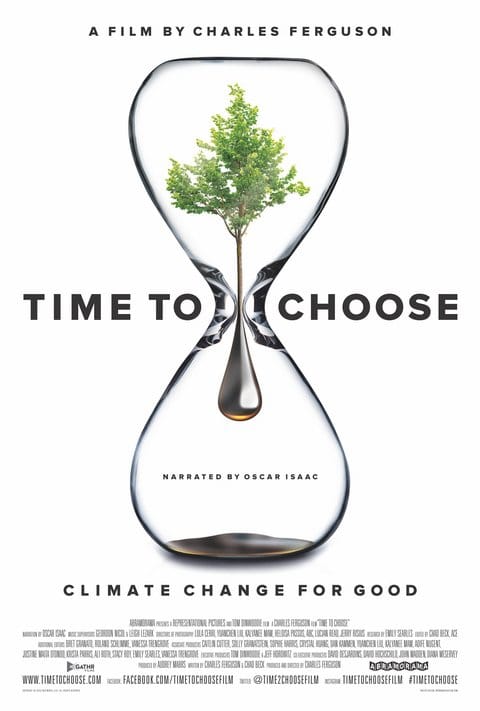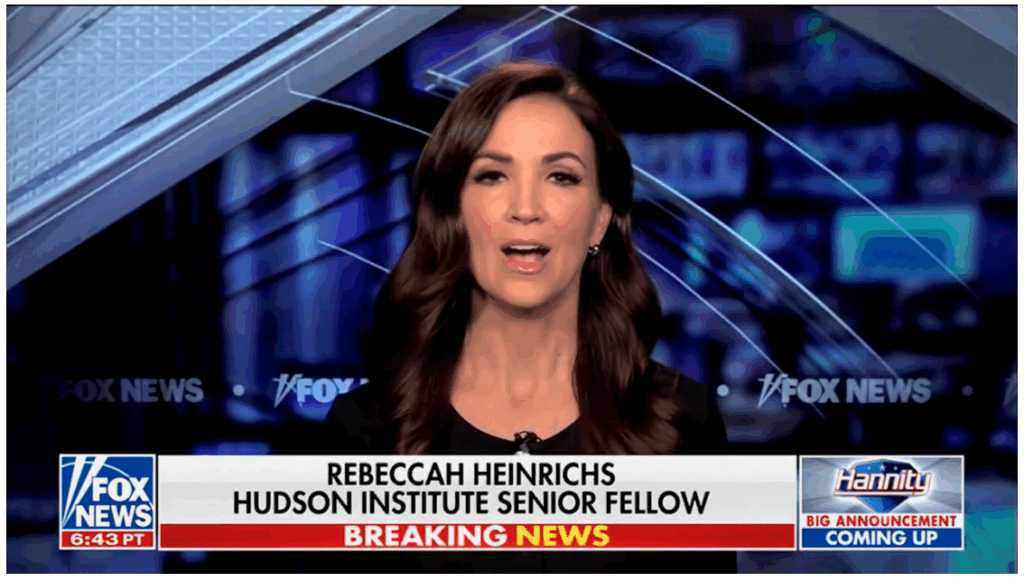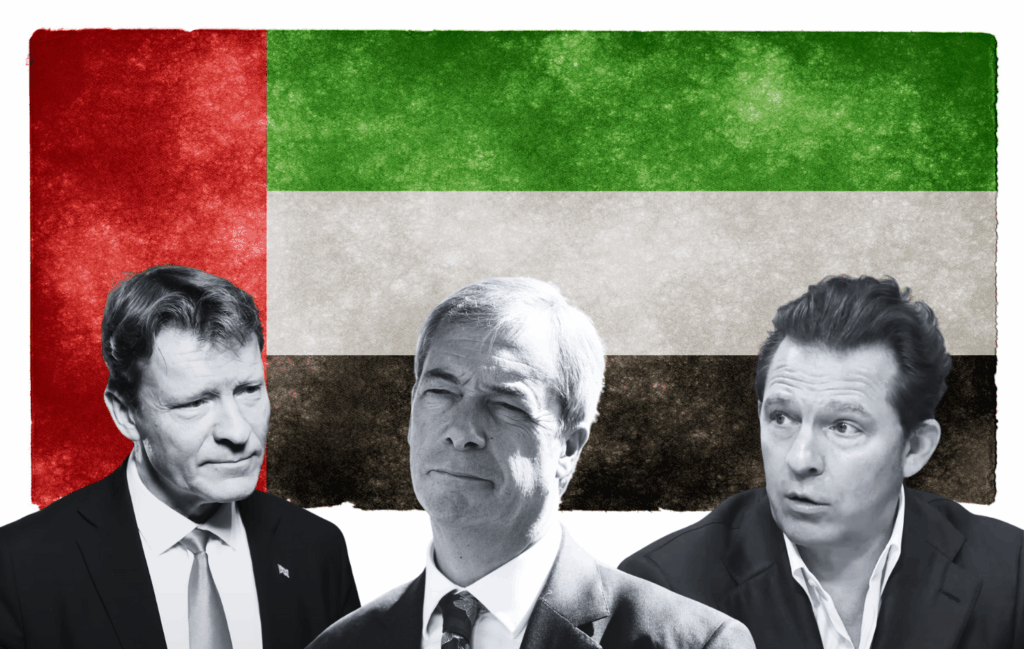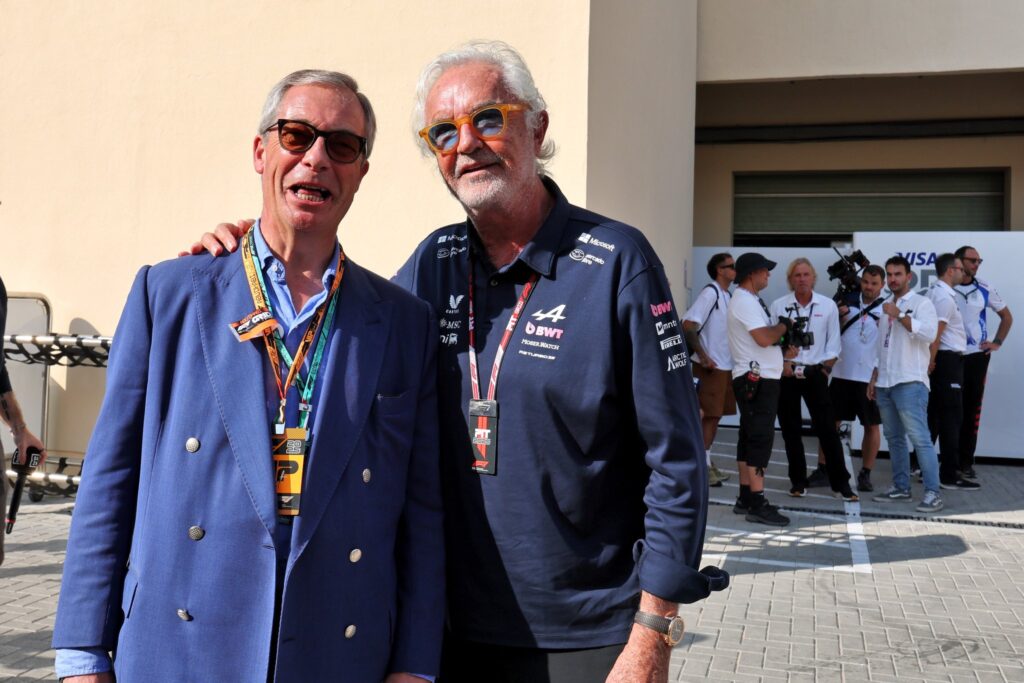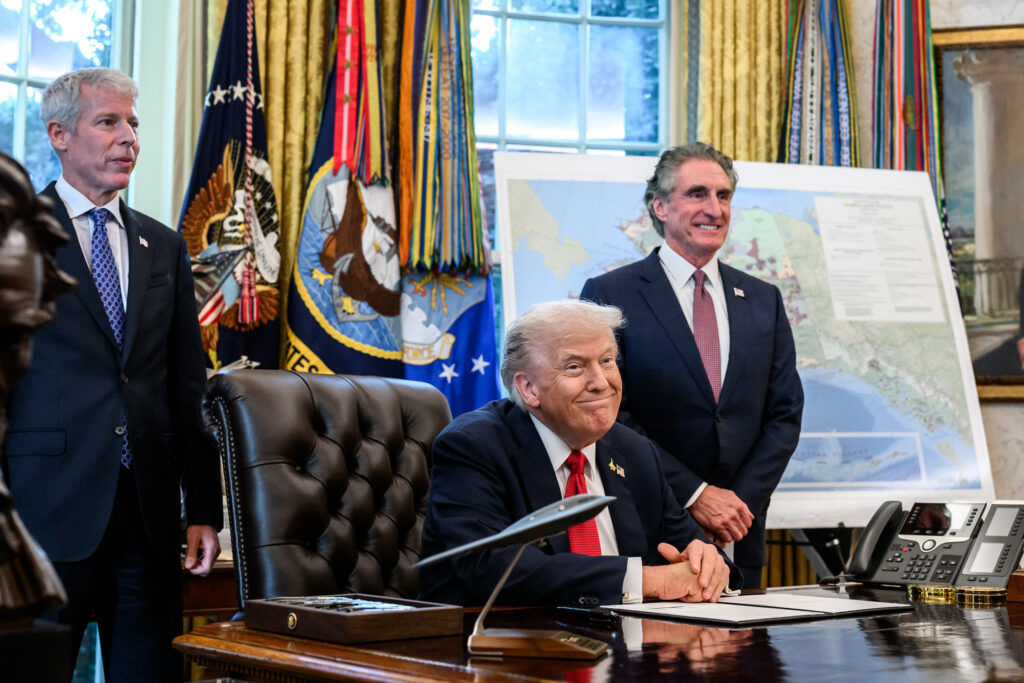Ten years after Davis Guggenheim’s seminal documentary film An Inconvenient Truth laid out a clear-eyed (some would say chilling and frightening) picture of the challenges facing the earth in reversing climate change, award-winning documentary filmmaker Charles Ferguson has released a similarly comprehensive but ultimately more hopeful film about answers to a threat that humanity ignores at its own peril.
There’s urgency in the narrative of Time to Choose, and the ticking clock is inherent in the title.
The film is grounded in facts and statistics on environmental destruction and features multiple talking heads like environmentalist Jane Goodall, Ikea CEO Peter Agnefjall, Greenpeace director Kumi Naidoo and California Governor Jerry Brown.
But Ferguson avoids conventionality by including absolutely stunning environmental footage, some of it shot covertly and illegally. And it avoids being simply alarmist by offering solutions — many of them already in process.
One of the most encouraging segments focuses on how renewable energy sources are rapidly becoming competitive with fossil fuels, and how even residents of developing countries are starting to benefit from solar power.
One of the more intractable problems highlighted in Time To Choose is the political corruption in countries like Brazil, China, Indonesia and India, corruption that permits the palm oil industry to burn forests and peat bogs (Indonesia) with impunity and has turned Nigeria to a petro-state with oil companies destroying the Niger Delta and the country’s one percent pocketing nearly all of the profits there.
Ferguson makes the case that fossil fuel industries are fighting any efforts that might weaken their dominance – there’s even a laughable clip of retired coal industry executive Don Blankenship stating, without proof, that arctic ice is increasing, not decreasing. (Don Blankenship is currently in prison serving a one-year sentence for conspiring to violate mine safety and health standards at Massey’s Upper Big Branch Mine where 29 miners died in 2010.)
It’s probably not a surprise that no executive from any fossil fuel company agreed to state the industry side of the story for the film.
I spoke with Ferguson about making the film and what surprised him about the fight to stop and reverse climate change.
On how far the climate debate has advanced since An Inconvenient Truth
FERGUSON: Public consciousness has changed. There is much more awareness of the problem. Reality has changed too. When I and others watched An Inconvenient Truth we all had the same reaction, that climate change is a very scary problem. An Inconvenient Truth was one of the most depressing movies I had seen. At the end of the film there was a list of things you could do like using more efficient light bulbs. But it was totally not convincing about the ability of a really large-scale solution that would allow the planet to continue living in a modern, advanced, prosperous way. Now we can. That change over the last decade has been extraordinary. It’s clear that renewable energy works and it’s real and electric cars work and in a few years they will be cost competitive with conventional cars. It’s tremendously exciting.
On the decision to Time To Choose so broad and comprehensive
I felt that what was missing in the documentary film world was a single place to get a broad view of the problem and the solutions to it. That’s the kind of thing I like to do and think of myself as well equipped to do. Thanks to our investors I had the resources. I wanted a broad, ambitious film that would appeal to people globally and would have a long lifetime. People could see it in ten years and will still be relevant.
On risky covert filming in China and Indonesia
This was a very tough film to make. All of that footage of Chinese coal miners was not sanctioned. In Indonesia there is nasty control over journalistic activities. If you’re a foreigner you must be granted a journalist visa. We would never have been granted that visa given what we’re doing. It was illegal for us to be in the country and illegal to engage in journalism. While we were there two French reporters were on trial for engaging in journalism, and the sentence would be five years in prison. You don’t want to spend five years in an Indonesian prison. Ariel filming is also illegal, and it requires permission of the military and a military escort and the permission of whoever owns the land you’re filming. Needless to say, the people who set huge illegal fires during burning season to clear the land for palm oil plantation would not be enthusiastic about letting us film that. We did this covert filming with the assistance of sympathetic people who I will not describe. And we had to bribe some people.
On the biggest threat to reversing climate change: political corruption.
Corruption is one of the toughest things about climate change and it isn’t frequently discussed in climate change circles. That’s why I put it in the film. It’s a tremendously difficult problem. There are many areas where individual actions and consumer choices can contribute a great deal to solve the problem. It’s possible for many to eat in a healthier and more sustainable way. It’s possible to use an electric car or walk or bike to work. It’s possible to put solar panels on roofs. There are many things individuals can do that are becoming easier to do as public awareness grows, as the renewable energy industry grows, as government policy becomes more favorable in the west.
But I was surprised at how deep the connection was between the climate problem and political corruption around the world. That was not discussed much when I made the rounds of the academic and climate policy experts. Much less than I think is warranted, maybe in part because it is such a difficult problem to address.
On hope for addressing corruption
Corruption has to be addressed by international pressure. There have been times when international boycotts, diplomatic pressure, support for internal reform groups have been effective.
Indonesia as bad as it still is used to be dramatically worse. It was an utterly corrupt military dictatorship run by a political and familial dynasty. In the wake of the 1998 Asian financial crisis that government was brought down, and replaced by a democratic government and for the first time there were anti-corruption efforts created. And that was through western and international financial and political pressure. The world bank the IMF, the U.S. government and others. As bad as Indonesia is, it does seem to be gradually getting better.
Brazil is in a bad way now but it used to be a military dictatorship and more corrupt than it is. If there were more international pressure, improvement will come faster.
On optimism
In making the film I was surprised at how available are solutions to the problems that contribute to climate change. I was a little shocked actually at how we really can solve this problem in ways that would leave us prosperous and improve public health.
Charles Ferguson also directed Inside Job, about the financial services industry corruption leading to the 2008 financial crisis, which won the Academy Award for Best Documentary in 2011, and No End In Sight: The American Occupation of Iraq, which won the Special Jury Prize at Sundance in 2007.
Time to Choose is in limited release in major cities and will be in wider release this summer.
Watch the tralier:
Subscribe to our newsletter
Stay up to date with DeSmog news and alerts


